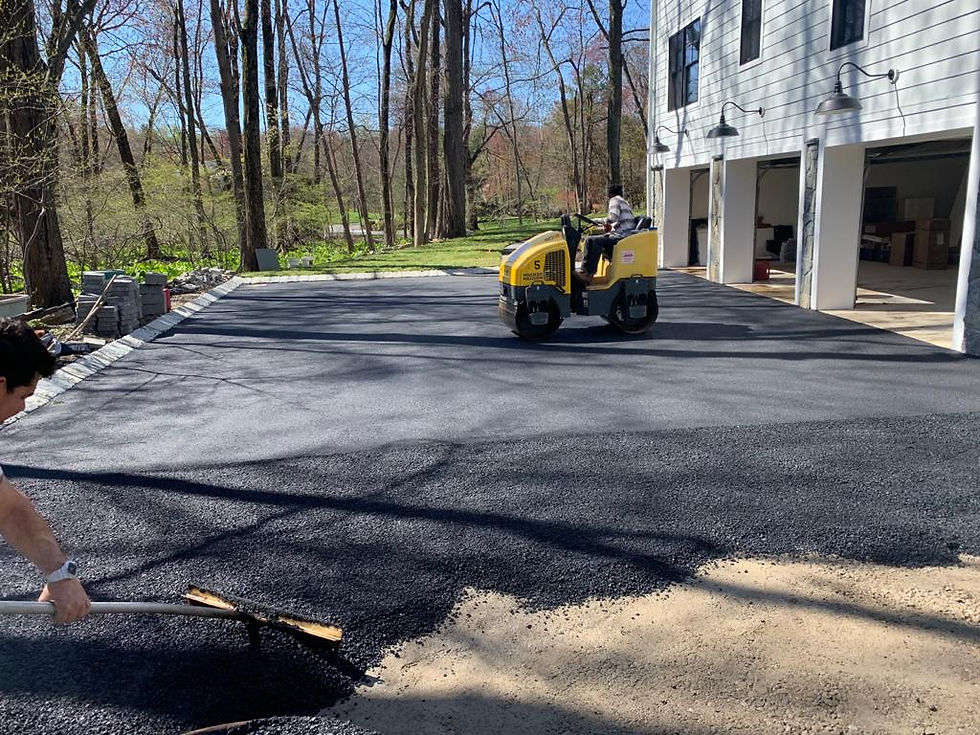The Pros and Cons of Concrete vs. Asphalt for Driveways
- May 30, 2023
- 2 min read
Updated: May 31, 2024
When it comes to choosing the right material for your driveway, two popular options are concrete and asphalt. Both materials have their unique advantages and considerations to keep in mind. In this blog post, High Class Hardscape will discuss the pros and cons of concrete and asphalt for driveways to help you make an informed decision.

Concrete Driveways:
Pros:
Durability: Concrete driveways are known for their long-lasting durability, with an average lifespan of 30 years or more.
Versatility: Concrete offers a range of design options, including various textures, colors, and decorative patterns.
Low Maintenance: Concrete requires minimal maintenance, typically needing only periodic sealing and occasional cleaning.
Stain Resistance: Concrete is less susceptible to oil and fluid stains compared to asphalt, making it easier to clean.
Reflective Properties: Concrete's light color reflects heat, reducing the absorption of heat on hot summer days.
Cons:
Cost: Concrete driveways tend to have higher upfront costs compared to asphalt due to material and labor expenses.
Installation Time: Concrete driveways typically take longer to install and require curing time before use.
Potential Cracking: While durable, concrete driveways can develop cracks over time, especially in areas with extreme temperature fluctuations or heavy vehicle traffic.

Asphalt Driveways:
Pros:
Cost-effective: Asphalt driveways generally have lower installation costs compared to concrete.
Quick Installation: Asphalt can be laid and ready for use relatively quickly, reducing downtime during installation.
Flexibility: Asphalt's flexibility allows it to expand and contract with temperature changes, reducing the risk of cracking.
Easy Repairs: If damage occurs, asphalt can be easily repaired and resurfaced, saving time and money.
Smooth Surface: Asphalt provides a smooth and quiet surface for vehicles, making it a popular choice for driveways.
Cons:
Maintenance: Asphalt requires regular maintenance, including periodic sealcoating and filling of cracks to extend its lifespan.
Lifespan: While asphalt driveways can last 15 to 20 years with proper maintenance, they generally have a shorter lifespan compared to concrete.
Vulnerable to Oil Stains: Asphalt is more susceptible to oil and fluid stains, which can be challenging to remove.
Choosing between concrete and asphalt for your driveway ultimately depends on your specific needs and preferences. Concrete offers durability, versatility, and stain resistance, while asphalt provides cost-effectiveness, quick installation, and easy repairs.
Consider factors such as budget, maintenance requirements, and desired aesthetic appeal when making your decision. For professional guidance and installation, contact High Class Hardscape at 201-602-4387 or visit our website highclasshardscape.com.









Comments